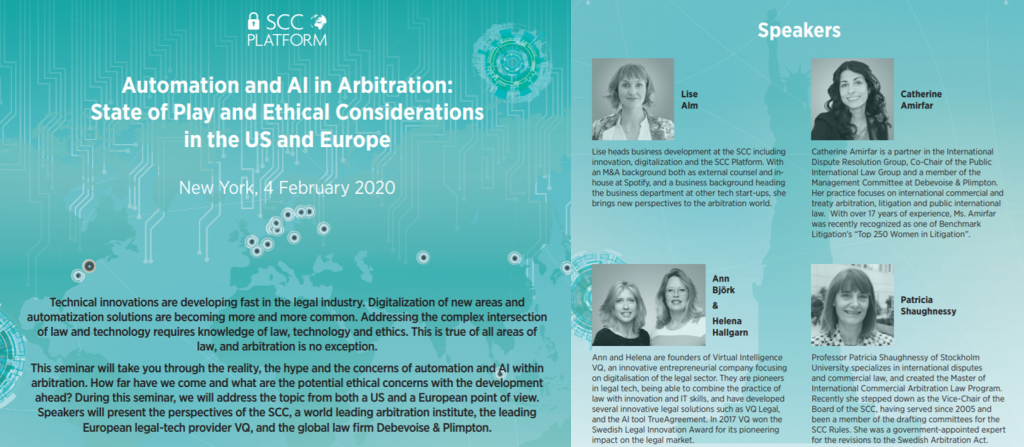In the latest issue of Legal IT Today (No. 28), some of the thought leaders on the legal market were asked about their opinion on innovation in legal, or more specific if we have seen the death of innovation in legal.
 All the participating industry experts agreed that there has been a buzz around innovation during the last years, with innovation directors, innovation conferences, innovation awards and even incubator initiatives or innovation labs. However, as Ron Friedmann, Chief Knowledge & Information Officer LAC Group, somewhat cynically pointed out ’innovation by press release costs little’ but it does not mean that any real innovation is going on. Mark A Cohen, CEO & Founder Legal Mosaic, similarly pointed out how the word innovation has been an overused, exaggerated term when applied to law and that it has been applied to internal changes designed to enhance profitability, not to improvements that positively impact legal buyers.
All the participating industry experts agreed that there has been a buzz around innovation during the last years, with innovation directors, innovation conferences, innovation awards and even incubator initiatives or innovation labs. However, as Ron Friedmann, Chief Knowledge & Information Officer LAC Group, somewhat cynically pointed out ’innovation by press release costs little’ but it does not mean that any real innovation is going on. Mark A Cohen, CEO & Founder Legal Mosaic, similarly pointed out how the word innovation has been an overused, exaggerated term when applied to law and that it has been applied to internal changes designed to enhance profitability, not to improvements that positively impact legal buyers.
Jordan Furlong, Principal Law21 meant that the legal system has an enormous challenge ahead when it comes to innovation, since both the public legal system and our private legal structures and methodologies are about 40 years behind other sectors, industries and institutions. The legal system is therefore in desperate need of modernization, seemingly everywhere at once. Kind of like when buying a 40 year old house and you need to replace or install new fixtures, wiring and plumbing etc. Many lawyers and law firms have now started to take this seriously and realize that there is a lot of catching up to do when it comes to legal innovation. This is one of the explanations to the latest buzz around it.

All the participating experts predicted though that we will not be hearing so much about innovation onwards, since the hype around it has faded and it now comes down to doing some actual hard work. Dawn Hudgins, Vice President Brand and Events ILTA, put it very catchy in that ‘Innovation has moved from being a noun to a verb, from a ‘thing’ to an ‘action’. Ron Friedman explained how client pressure to deliver more value remains potent and some law firms will start to take the difficult steps to change how lawyers practice and firms operate, which is necessary to deliver more value. Doing that, however, isn’t ‘as sexy as a big announcement’. Similarly, Mark A Cohen urged us to start focus on ways that legal services can be more accessibly, efficiently, cost-effectively and customers-centrically delivered, i.e. to start innovating for real.
From our own point of view in VQ, we believe that we are starting to see how the technological advances and innovation are beginning to have an impact for real on the legal market (even though we still have quite a long way to go before there will be some real disruption as predicted at all innovation conferences etc.). There are for example interesting initiatives with online courts where digital platforms are used both for the submissions of evidence and arguments, and for the delivery of decisions, without any human contacts, such as the online divorce project in England and Wales that was launched in 2018. Also in arbitration there are some innovation going on, like the new SCC Platform, which provides participants with a secure and efficient way of communicating and filing all case materials in the arbitration On the law firm market, digitalization and technological advances have altered the competitive advantages large law firms had before and has given small and new players the possibility to compete on equal terms with large players. Technology has resulted in a shifted focus to the way lawyers work and increased efficiency, but it has also opened up the market to new kinds of service providers. Already, parts of the traditional law practice are being replaced by legal online solutions, document review services, managed legal services and new legal services, thanks to the technological advances. A very positive aspect of the technological advances is that it has the possibility to make legal advice more accessible and cost-efficient, potentially solving the current “access to justice”-problem, especially when it comes to low value or private law matters. But this is only the beginning. The real change will come when the industry starts to shift focus from individual technologies handling the business the same way but faster, to digitalization that transforms the business as such and changes the delivery mechanisms all together.
The change in the delivery mechanisms that we predict makes it clear that legal services for the future will focus less on the lawyers and more on how to create business value. Clients do not want lawyers per se, what they want is their legal issues to be managed. They are not interested in paying expensive hourly lawyer rates for administrative work that could be managed much faster, cheaper and better by a system or an alternative service provider. In the coming decade, all lawyers need to embrace legaltech and learn about technology solutions and work together with the machines to stay relevant.
Therefore, we strongly believe that legal innovation is not dead at all, but that we in fact are just getting started! But this time with real innovation that actually will change the legal market.
For those of you who will be in New York next week, we are pleased to let you know that we will talk about our view on legal innovation and the legaltech hype at the seminar Automation and AI in Arbitration hosted by the SCC and Debevoise & Plimpton in New York on Tuesday, 4 February.


